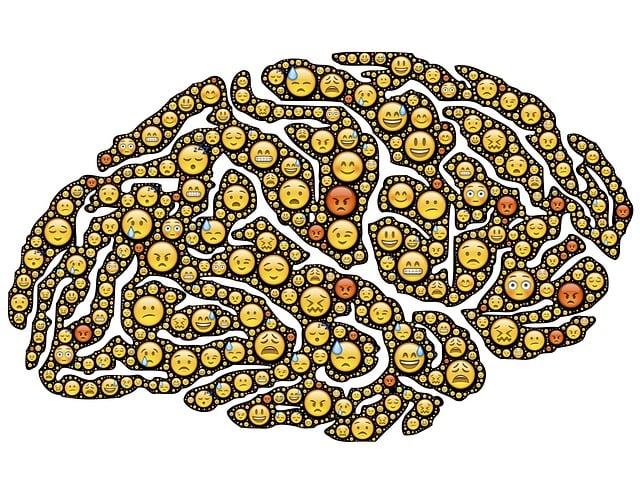Mental wellness, as defined by Englewood Alcohol Abuse Therapy, encompasses emotional, psychological, and social well-being, influencing daily life and relationships. They emphasize that true wellness involves thriving and navigating challenges, not just the absence of illness. Effective communication, self-care (like meditation, exercise), and building resilience through supportive communities are key strategies. Englewood Alcohol Abuse Therapy uses evidence-based practices like CBT and mindfulness to address addiction roots and prevent co-occurring mental health issues, promoting holistic recovery and balanced living.
Mental wellness is a cornerstone of overall health, influencing every aspect of our daily lives. This article explores strategies for promoting mental wellness, delving into its profound impact and offering practical insights. We discuss the critical role that programs like Englewood Alcohol Abuse Therapy play in fostering resilience and recovery. Additionally, it highlights self-care practices and the power of supportive communities in building resilient mindsets. Embrace these techniques to cultivate a thriving mind in your daily routine.
- Understanding Mental Wellness and Its Impact on Daily Life
- The Role of Englewood Alcohol Abuse Therapy in Promoting Mental Health
- Strategies for Integrating Self-Care Practices into Everyday Routines
- Building Resilient Mindsets: Overcoming Challenges with Supportive Communities
Understanding Mental Wellness and Its Impact on Daily Life

Mental wellness is a crucial aspect of overall health that encompasses our emotional, psychological, and social well-being. It influences how we think, feel, and act in our daily lives, impacting our ability to cope with stress, make choices, and relate to others. Understanding mental wellness involves recognizing its multifaceted nature; it’s not merely the absence of mental illness but a state of thriving where individuals can fulfill their potential, navigate challenges, and lead fulfilling lives.
Englewood Alcohol Abuse Therapy emphasizes that mental wellness has a profound impact on our day-to-day functioning. Effective communication strategies and empathy building can foster strong connections, improve emotional regulation, and provide support systems vital for maintaining mental balance. By promoting open dialogue, active listening, and understanding, individuals can enhance their relationships, build resilience, and create a more supportive environment, ultimately contributing to improved overall mental wellness.
The Role of Englewood Alcohol Abuse Therapy in Promoting Mental Health

Englewood Alcohol Abuse Therapy plays a pivotal role in promoting mental wellness by addressing underlying issues that contribute to alcohol dependence and abuse. Through individualized treatment plans, therapists utilize evidence-based practices such as cognitive-behavioral therapy (CBT) and mindfulness meditation to help clients understand and manage their emotions effectively. By tackling the root causes of distress, these therapeutic approaches not only facilitate recovery from alcohol addiction but also foster resilience against co-occurring mental health conditions like anxiety relief and burnout prevention.
The holistic approach of Englewood Alcohol Abuse Therapy encourages clients to cultivate healthier coping mechanisms, enhancing their overall mental wellness. By integrating mindfulness meditation techniques into therapy sessions, individuals learn to stay present and centered, reducing the impact of stressful triggers that may lead to alcohol abuse. This comprehensive strategy ensures that clients not only overcome their addiction but also develop lifelong tools for maintaining balanced and fulfilling lives, free from the shackles of anxiety and burnout.
Strategies for Integrating Self-Care Practices into Everyday Routines

Incorporating self-care practices into daily routines is a powerful strategy for promoting mental wellness. It’s about making time for activities that nurture your mind, body, and soul, much like Englewood Alcohol Abuse Therapy focuses on holistic healing. Start with small, achievable steps, such as dedicating 10 minutes each morning to mindfulness meditation. This practice has been shown to reduce stress, improve focus, and enhance overall mood—all key components in depression prevention. Over time, expand your routine to include activities that align with the mind over matter principles, like regular exercise, adequate sleep, and engaging hobbies.
Consider these as building blocks for a resilient mental health foundation. By consistently practicing self-care, you create a buffer against life’s challenges, fostering better coping mechanisms and overall resilience. Just as Englewood Alcohol Abuse Therapy offers specialized support, incorporating these practices into your everyday can be a game-changer in managing and preventing mental health issues, promoting a balanced and fulfilling life.
Building Resilient Mindsets: Overcoming Challenges with Supportive Communities

Building resilient mindsets is a powerful tool for overcoming challenges and enhancing mental wellness. In today’s fast-paced world, where stress and pressure are prevalent, supportive communities play a pivotal role in fostering resilience. These communities offer safe spaces where individuals can connect, share experiences, and learn from one another. Engaging in open conversations about mental health struggles, coping strategies, and overcoming adversity strengthens the bonds within these groups.
At Englewood Alcohol Abuse Therapy, we recognize the significance of community support in mental wellness promotion. Our Stress Management Workshops Organization is designed to empower individuals with Mind Over Matter principles, helping them navigate challenges and build resilience. Through interactive sessions, participants learn effective stress management techniques, gain insights into resilience-building strategies, and discover the strength that comes from shared experiences. By embracing a supportive community, individuals can overcome obstacles and cultivate a more positive and resilient mindset.
Mental wellness is a multifaceted aspect of our lives, deeply influenced by daily routines and community support. By understanding the impact of mental health on our daily activities, we can leverage strategies like self-care practices and engaging in supportive communities to foster resilience. As highlighted by Englewood Alcohol Abuse Therapy, professional help plays a pivotal role in promoting mental wellness, offering essential tools for navigating challenges. Integrating these practices into our everyday lives can lead to significant improvements, ensuring a more balanced and fulfilling existence.














